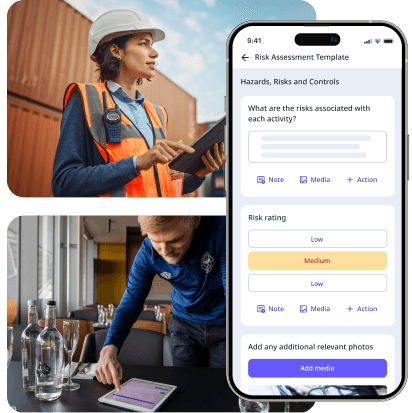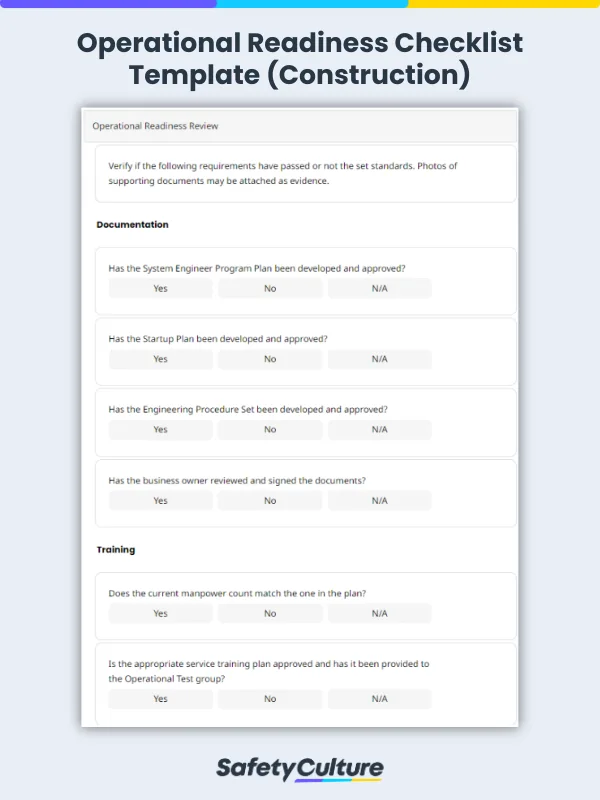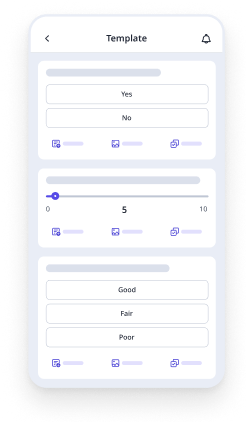Published 26 Sept 2025
Article by
3 min read
What is Operational Readiness?
Operational readiness is a disciplined, methodical, and progressive review that ensures all project deliverables are complete and tested to help achieve a smooth start-up followed by safe steady-state operations. Operational readiness aims to reduce operational risks so it carefully reviews common culprits such as inadequate or failed internal processes, people, systems in place, and any other factors that can critically affect start-up and the overall schedule of operations.
Why Use an Operational Checklist?
An operational checklist is a structured assessment tool designed to ensure that all necessary tasks are completed to bring a project or process to a state of readiness for commencement or restart. An operational checklist can be used before the start of a new process or for restarting existing processes that were previously halted.
Operations project managers from the oil and gas, construction, and mining industries benefit from using an operational readiness checklist as it helps confirm that the people, procedures, and systems are in place to ensure timely delivery, commissioning, and handover of infrastructure projects.
This operational readiness checklist for construction is divided into the following crucial sections:
Project details
Documentation
Training
Environmental and safety
Emergency preparedness
Systems testing
Startup program
Observations
Conclusion of operational readiness review
Recommendation for certification
4 Steps to Ensure a Smooth Project Start-Up
A project’s first day could lead to chaos if process transitions, such as new infrastructure start-up, are not planned well. As reported by Deloitte, projects risk losing 30% of their value due to ineffective operational readiness. Operational errors, disorganization, and an underprepared workforce result in value loss and project underperformance.
To ensure operational readiness and a hassle-free project start-up, follow these key steps:
Define jobs and recruit the right people. Human factor is essential to operational readiness. It is critical to properly define the job roles necessary for ensuring a smooth “day one” of operations. With key operations success factors in mind, it is then essential to recruit the people who have relevant expertise and identify training needs for them to manage the start-up well.
Involve all concerned departments. When conducting an operational readiness assessment, always consult the departments affected by the project. Operational readiness reviews should include representatives from engineering, maintenance, accounting, and human resources, as they can help verify conformance for concerns in construction quality, facilities preparedness, financials, and training competency. Risk throughout the project lifecycle decreases if all concerns are identified and resolved prior to start-up.
Ensure effective information dissemination. Capture relevant information throughout the planning phase and ensure that they are disseminated to those who will manage the start-up. Their ability to adapt to unforeseen events will depend on how much information they have about the project. Equip them with an accessible and organized database that contains information on real-time system performance, design plans, permits, and contact numbers.
Conduct testing and commissioning. Testing and commissioning are vital steps in operational readiness as they verify if the assets or processes have achieved performance goals before full-fledged operations. With the help of operational readiness checklists,inspectors can help improve the integrity of the system by identifying areas that need fine-tuning.


